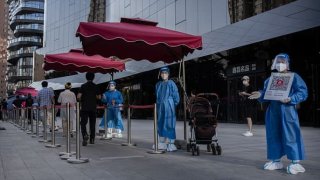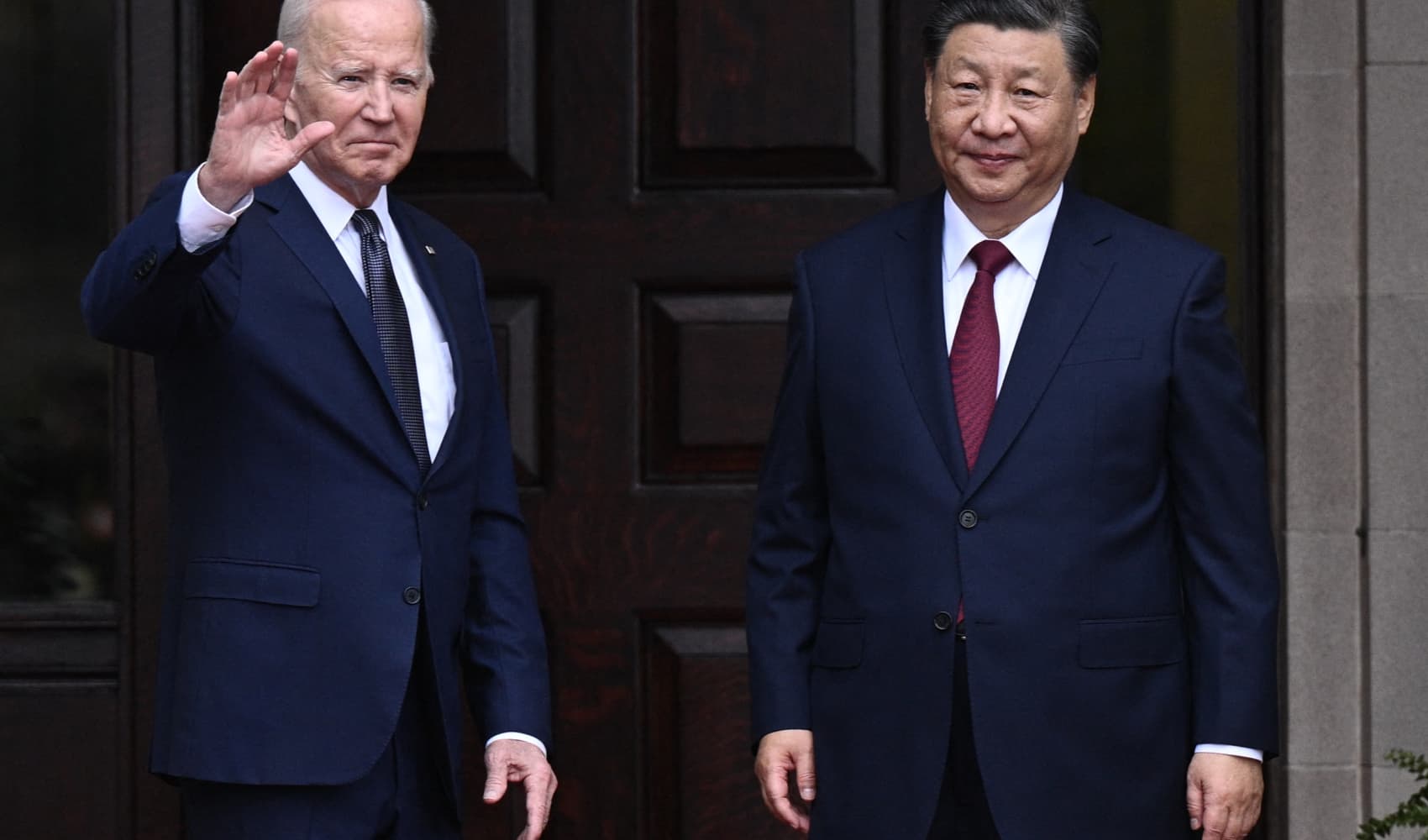
- UBS cut its forecast to 3%, down from 4.2% previously and the lowest among estimates tracked by CNBC.
- JPMorgan slashed its forecast to 3.7% growth, down from 4.3%.
- Both marked the third reduction in a few months.
BEIJING — Two investment banks cut their China GDP forecasts this week for a third time this year based on the toll of persistent Covid controls.
Both estimates are under 4% — well below the official target of around 5.5% growth for 2022.
UBS cut its forecast to 3%, down from 4.2% previously and the lowest among estimates tracked by CNBC.
Get South Florida local news, weather forecasts and entertainment stories to your inbox. Sign up for NBC South Florida newsletters.
JPMorgan slashed its forecast to 3.7% growth, down from 4.3%.
"The easing of Covid restrictions will unlikely be as rapid as in 2020 given the nature of Omicron," UBS economist Tao Wang and a team wrote in a report Tuesday.
"The lingering restrictions and lack of clarity on an exit strategy from the current Covid policy will likely dampen corporate and consumer confidence and hinder the release of pent-up demand," the report said.
Money Report
China was the only major economy to grow in 2020, with a revised GDP print of 2.2%, as the country was able to quickly resume production while much of the world remained under lockdown.
However, this year's Covid outbreak stems from the more transmissible omicron variant. Many countries have shifted to a "living with Covid" strategy. Beijing has maintained a far more stringent "dynamic zero-Covid policy," citing the risk of overwhelming its public health care system and a lower level of vaccination rates among the country's elderly.
"Uncertainties related to economic forecasts are high," JPMorgan's chief China economist Haibin Zhu and a team wrote a report Monday.
"Implementation of zero-COVID policy remains the biggest uncertainty, including the risk of prolonged disruption of economic activity and the risk of recurring Omicron wave," the analysts said, adding the government may introduce more policy stimulus in the next few months.
Economists are also concerned about the quality of China's growth, given increased stimulus and spending on Covid testing.
JPMorgan's Zhu estimates the cost for regular Covid testing will be 40 billion to 50 billion yuan ($5.97 billion to $7.46 billion), or 0.4% to 0.5% of GDP a year at a minimum.
"This does not include public health expenses, provision of community services during lockdowns and construction of test stations and quarantine centers," the report said, noting that workers also need to take time out of their day to wait in lines for virus testing.






